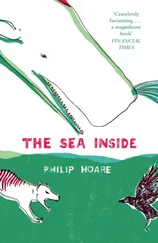The whale went through his routine, responding to his trainer’s demands like a lap dog. When he leapt in the air and landed with a splash – soaking the thrilled ringside audience at this orca circus – it was as if he were beaten by his captivity, even as his proud dorsal fin flopped impotently over his back.
‘Here in their pool at Windsor,’ the brochure reassured us, the performers ‘should survive for a great many more years than in the sea, to delight and entertain their visitors’. Within two years Ramu had grown too big for his tank. In 1976 he was sold to Seaworld in San Diego, where he was renamed Winston, sired four offspring, and died, ten years later, of heart failure – one of more than two hundred killer whales to perish in captivity in the last quarter of the twentieth century.
Back at home, I painted a picture of the orca in my journal, varnished and pristine on the page. But there were already other entries in my book, new passions. I forgot about whales, and thought about other things.
Chief among these motives was the overwhelming idea of the great whale himself. Such a portentous and mysterious monster roused all my curiosity.
Loomings, Moby-Dick
It was my first visit to America. It was January, and I knew no one in New York. Freezing winds funnelled down the midtown canyons. Feeling homesick and lost, I took the subway as far as it would go. Outside the station at Coney Island, strange shapes stood in silhouette, skeletal versions of the Manhattan skyline I had left behind: a sinuous, hibernating roller coaster, and another instrument of amusement which looked like some giant gynæcological tool. I found my way to the aquarium and wandered through its empty interior, shuddering as I passed tanks filled with fish. There was something pathetic about this out-of-season place, a sense of abandonment blown in from the forlorn boardwalk and the suburban sea.
Let into the white walls was an observation window, thick enough to withstand tons of water. It reminded me of the portholes in Southampton’s baths where children pressed their pasty flesh to the glass; but this murky pane presented something entirely more spectral. Beckoning at the window, vertical and full length as if rising to greet me, was a beluga whale. It must have been twelve feet long, from its bulbous head to its stubby flukes; a huge ghostly baby fixing me with its stare.
As out of place as it seemed, this New York whale had an historical precedent. In 1861 Phineas T. Barnum had imported a pair of belugas to his American Museum on Broadway. Fished out of the waters off Labrador and brought south in hermetically sealed boxes lined with seaweed, the whales were twenty-three and eighteen feet long respectively. Their basement tank measured fifty-eight by twenty-five feet, but it was barely seven feet deep, and was filled with fresh water. In it they swam like lovers, although even their owner believed they would have only brief careers. ‘Here is a real “sensation”,’ the New York Tribune marvelled, imagining that ‘the enterprise of Mr. Barnum will not stop at white whales. It will embrace sperm whales and mermaids, and all strange things that swim or fly or crawl, until the Museum will become one vast microcosm of the animal creation.’
This fascination with the whale, like Philip Brannon’s report from Southampton Water, was an expression of Victorian fashion, a characteristic marriage of ingenious science and human curiosity. In England, live whales were delivered to aquaria in Manchester and Blackpool (although one porpoise show was closed, for fear the flagrant activities of its performers should offend genteel dispositions), and in September 1877 a beluga whale arrived in Westminster, in the centre of the world’s greatest city. The nine-foot, six-inch specimen had also been caught–along with ten others–off Labrador, where it had stranded at high tide and was netted by Zack Coup and his men. From there it began its long journey to London.
Taken in a narrow box by sloop to Montreal, the whale was put on a train to New York–a trip that took two weeks. The animal spent seven months at Coney Island’s Summer Aquarium where ‘he contracted his habit of swimming in a circle’, before being taken out of its tank and put on a North German Lloyd steamship, the Oder , bound for Southampton. During the voyage, it was kept on deck in a rough wooden box lined with seaweed, and was wetted with salt water every three minutes. Despite such intensive care, the whale had already begun to live off its own blubber.
At Southampton the beluga was transferred to the South-Western Railway, travelling on an open truck to Waterloo Station and to its final home, an iron tank forty-four feet long, twenty feet wide, and six feet deep, at the Royal Aquarium, a grand gothic structure recently built opposite the Houses of Parliament. The whale waited as the tank took two hours to fill. ‘He had been lying still in the box breathing once every 23 seconds. He flapped feebly with his tail when he felt them moving the box. He fell out of it sidelong into the water and went down to the bottom like lead.’ The animal was allowed three hours of privacy before the public, ‘in great numbers’, were admitted to view it from a specially built grandstand.
The Times did not feel this was the right way to treat a whale. ‘It is not likely he will live long in fresh water, although he comes up at intervals from ten to 100 seconds to breathe, and sometimes spouts the water up through the wide nostril which he has in the middle of his forehead. Noise or jarring caused by the workmen occasionally makes him stay beneath the water for two minutes at a time.’ The beluga was fed live eels, but it was noted that its high dorsal ridge, ‘which should be rounded with fat’, stood up ‘precipitously on his back’.
‘Should he succumb to the unfavourable conditions of life in this city, no whalebone will be extracted from this monster,’ the newspaper added. ‘Nor is the white whale very rich in blubber. But his coat will make porpoise-skin boots.’
The Times’s suspicions were correct, even if its assignation of gender was not. In what appeared to be delirious behaviour, the whale–which was in fact a female–swam up and down the tank rapidly, hitting its head on the wall. Then, ‘having somewhat recovered, it again swam several times round the tank, again came into collision with the end of the tank, turned over, and died.’
Nor was the indignity over, for the body was taken out of the tank and exhibited to the public the next day. A plaster cast was made, and a necropsy performed by eminent naturalists and physicians. They discovered that far from starving, the whale had a full stomach–but also highly congested lungs. The fact that the animal had been kept on open deck on its way over the Atlantic, and, rather than keeping it alive, the regular dousing it had received, had resulted in rapid evaporation between soakings, causing it to catch cold.
The Westminster whale’s public demise prompted correspondence from persons in high places. Bishop Claughton of St Albans, a poet in his own right, complained that it was ‘the creature of which the Psalmist speaks as placed in its element by the Great Creator’, and it was not man’s right to take him out of it. William Flower of the Royal College of Surgeons–later to become the first director of the Natural History Museum–had attended the necropsy, and countered that the ‘supposed marks of ill-usage’ on its body ‘were the consequences of the eels in the tanks having after its death nibbled the edges of its fins’. Professor Flower claimed the entire process was justified for ‘the advantage to scientific and general knowledge to be gained’. But then, his own institution had benefited from the donation of the internal organs, which would ‘make very interesting preparations’.
Читать дальше












